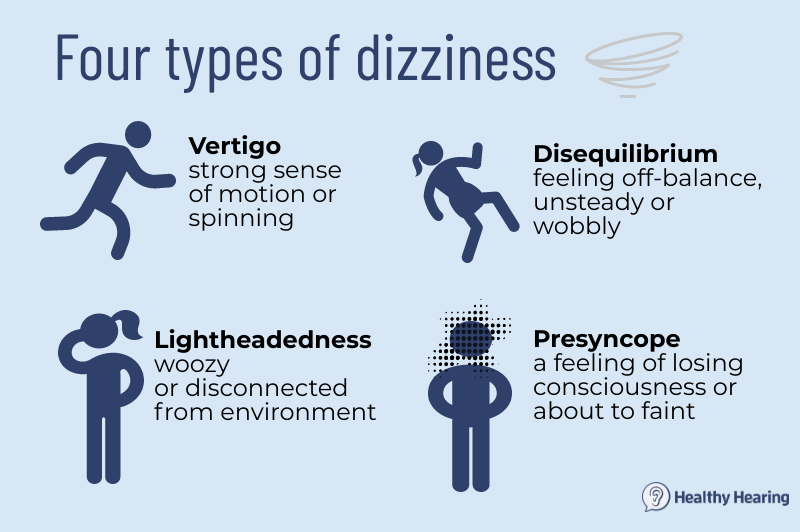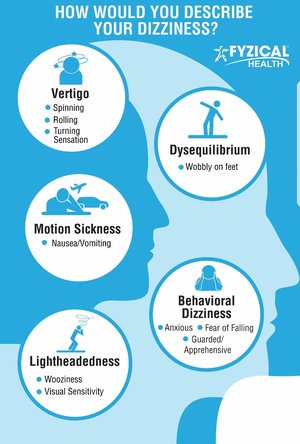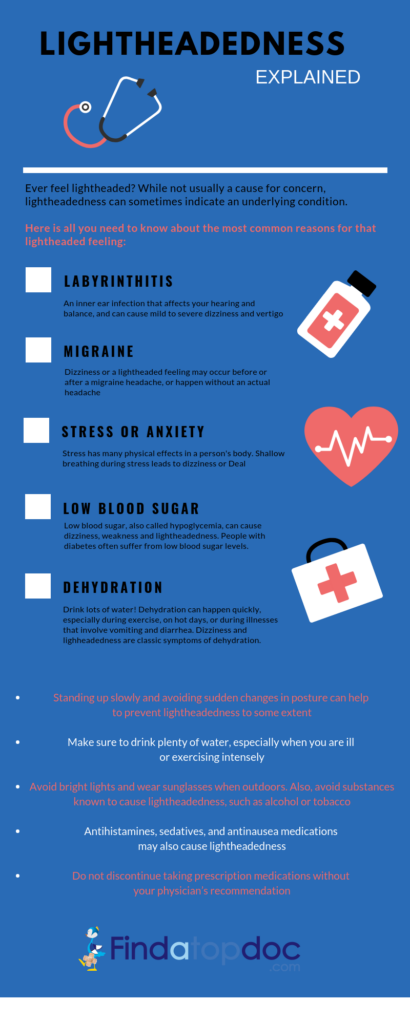Do you ever experience moments when you feel dizzy or lightheaded, as if the ground beneath you might give way? It can be an unsettling sensation, leaving you wondering what could be causing it and if there is any cause for concern. In this article, we will explore the various causes and symptoms of lightheadedness, helping you gain a better understanding of this commonly experienced but often misunderstood condition. So, if you’ve ever found yourself wondering why you suddenly feel light on your feet, keep reading to discover the answers you’ve been searching for. Lightheadedness is a common sensation that many people experience at some point in their lives. It can range from a mild, temporary feeling of dizziness to a more severe and prolonged sensation of faintness. While lightheadedness is often harmless and transient, it may sometimes be a sign of an underlying health condition. In this article, we will explore the various causes and symptoms of lightheadedness, helping you understand when it might be time to seek medical attention.

Causes of Lightheadedness
Dehydration
One of the most common causes of lightheadedness is dehydration. When your body doesn’t have enough water, it can lead to a drop in blood volume and low blood pressure. This decrease in blood flow to the brain can result in feelings of lightheadedness. It is essential to stay adequately hydrated by drinking enough water throughout the day, especially during periods of physical exertion or when exposed to hot weather.
Low Blood Pressure
Low blood pressure, also known as hypotension, can be another culprit behind lightheadedness. When your blood pressure drops below normal levels, it can cause inadequate blood flow to the brain, leading to feelings of dizziness. Certain factors, such as standing up too quickly or standing for long periods, can trigger a temporary drop in blood pressure. However, if you frequently experience lightheadedness due to low blood pressure, it is advisable to consult a healthcare professional for further evaluation and management.
Anxiety or Panic Disorders
Anxiety and panic disorders are psychological conditions that can manifest with physical symptoms, including lightheadedness. When you are under a significant amount of stress or experiencing anxiety, your body may respond by releasing stress hormones that can affect your blood pressure and heart rate. This physiological response can result in lightheadedness, among other symptoms. If you suspect that anxiety or panic disorders may be the underlying cause of your lightheadedness, reaching out to a mental health professional can help you manage and alleviate these symptoms.
Medication Side Effects
Lightheadedness can also be a side effect of certain medications. Some drugs, like those used to treat high blood pressure or anxiety, can potentially cause a drop in blood pressure, leading to feelings of dizziness. It is crucial to read the information leaflets provided with your medications and consult with your healthcare provider to understand and manage any potential side effects.
Inner Ear Problems
The inner ear plays a vital role in maintaining balance and equilibrium. If you have a condition affecting your inner ear, such as labyrinthitis or Meniere’s disease, it can disrupt the signals sent to your brain about your body’s position in space. This disruption can lead to lightheadedness, dizziness, and a loss of balance. If you are experiencing persistent lightheadedness accompanied by hearing loss or severe vertigo, it is advisable to consult with an ear, nose, and throat specialist for further evaluation and treatment.
Heart Conditions
Certain heart conditions, such as arrhythmias or abnormal heart rhythms, can cause inadequate blood flow to the brain, resulting in lightheadedness. Additionally, if the heart is not pumping blood effectively, it can lead to a drop in blood pressure, further exacerbating lightheadedness. If you have a known heart condition or are experiencing other symptoms, such as chest pain or shortness of breath, it is essential to seek prompt medical attention.
Blood Sugar Levels
Abnormal blood sugar levels, particularly low blood sugar or hypoglycemia, can induce lightheadedness. This is often seen in individuals with diabetes who have taken too much insulin or missed a meal. When blood sugar levels are out of balance, it can affect the brain’s energy supply, leading to feelings of dizziness and weakness. Monitoring and maintaining stable blood sugar levels is crucial for individuals with diabetes to avoid lightheadedness and other related complications.
Anemia
Anemia occurs when there is a deficiency of red blood cells or hemoglobin in the body. This condition can result in reduced oxygen-carrying capacity, leading to lightheadedness, fatigue, and weakness. Anemia can be caused by a variety of factors, including nutritional deficiencies, chronic diseases, or blood loss. If you suspect that anemia may be the underlying cause of your lightheadedness, seeking a medical evaluation and appropriate treatment is essential.
Migraines
For individuals who suffer from migraines, lightheadedness can be a common symptom during migraine attacks. Migraines are intense headaches that often come with additional symptoms such as nausea, sensitivity to light and sound, and visual disturbances. The exact cause of migraines is not fully understood, but they are thought to involve changes in blood flow and neurotransmitter levels. If you experience recurrent migraines accompanied by lightheadedness, discussing your symptoms with a healthcare professional can help determine the best treatment options for you.
Pregnancy
Lightheadedness is a common complaint among pregnant women, particularly during the first trimester. The hormonal changes that occur during pregnancy, coupled with changes in blood circulation, can contribute to feelings of dizziness. Additionally, the expanding uterus can put pressure on blood vessels, further impacting blood flow. It is crucial for pregnant individuals to maintain adequate hydration, avoid sudden movements, and take breaks when needed to prevent lightheadedness.

Symptoms of Lightheadedness
Feeling Faint or Dizzy
A primary symptom of lightheadedness is a sensation of feeling faint or dizzy. You may feel like the room is spinning or that you are about to pass out.
Loss of Balance
Lightheadedness can lead to a loss of balance, making it difficult to walk or maintain stability. You may find yourself stumbling or struggling to stay upright.
Nausea
Feeling nauseous or queasy is another common symptom of lightheadedness. It can be accompanied by a general feeling of unease in the stomach.
Blurred Vision
Lightheadedness can cause your vision to become blurry or hazy. This can make it challenging to focus on objects or see clearly.
Weakness
Lightheadedness often comes with a sense of weakness or a lack of strength in your body. You may feel fatigued or unable to engage in physical activities.
Pale Complexion
When lightheadedness is present, you may notice that your complexion becomes pale or ashen. This change in skin color is due to decreased blood flow.
Sweating
Excessive sweating is another symptom that can accompany lightheadedness. Your body may produce more sweat than usual in response to the physiological changes occurring.
Rapid Heartbeat
Lightheadedness can cause your heart rate to increase, resulting in a rapid or pounding heartbeat. This palpitation can be unsettling and contribute to feelings of anxiety.
Confusion or Disorientation
Lightheadedness can lead to a sense of confusion or disorientation. You may have difficulty concentrating or processing information.
Tunnel Vision
Some individuals experiencing lightheadedness may notice a narrowing of their visual field, commonly referred to as tunnel vision. This can make it challenging to see objects in your peripheral vision.
In conclusion, lightheadedness is a common and often harmless sensation that can be caused by various factors. Dehydration, low blood pressure, anxiety, medications, inner ear problems, heart conditions, blood sugar imbalances, anemia, migraines, and pregnancy are all potential causes of lightheadedness. Recognizing the symptoms associated with lightheadedness, such as feeling faint, loss of balance, nausea, blurred vision, weakness, pale complexion, sweating, rapid heartbeat, confusion, or tunnel vision, can help identify when further medical attention may be needed. If you or someone you know frequently experiences lightheadedness or if your symptoms are severe or persistent, it is advisable to consult with a healthcare professional for proper evaluation, diagnosis, and management.
